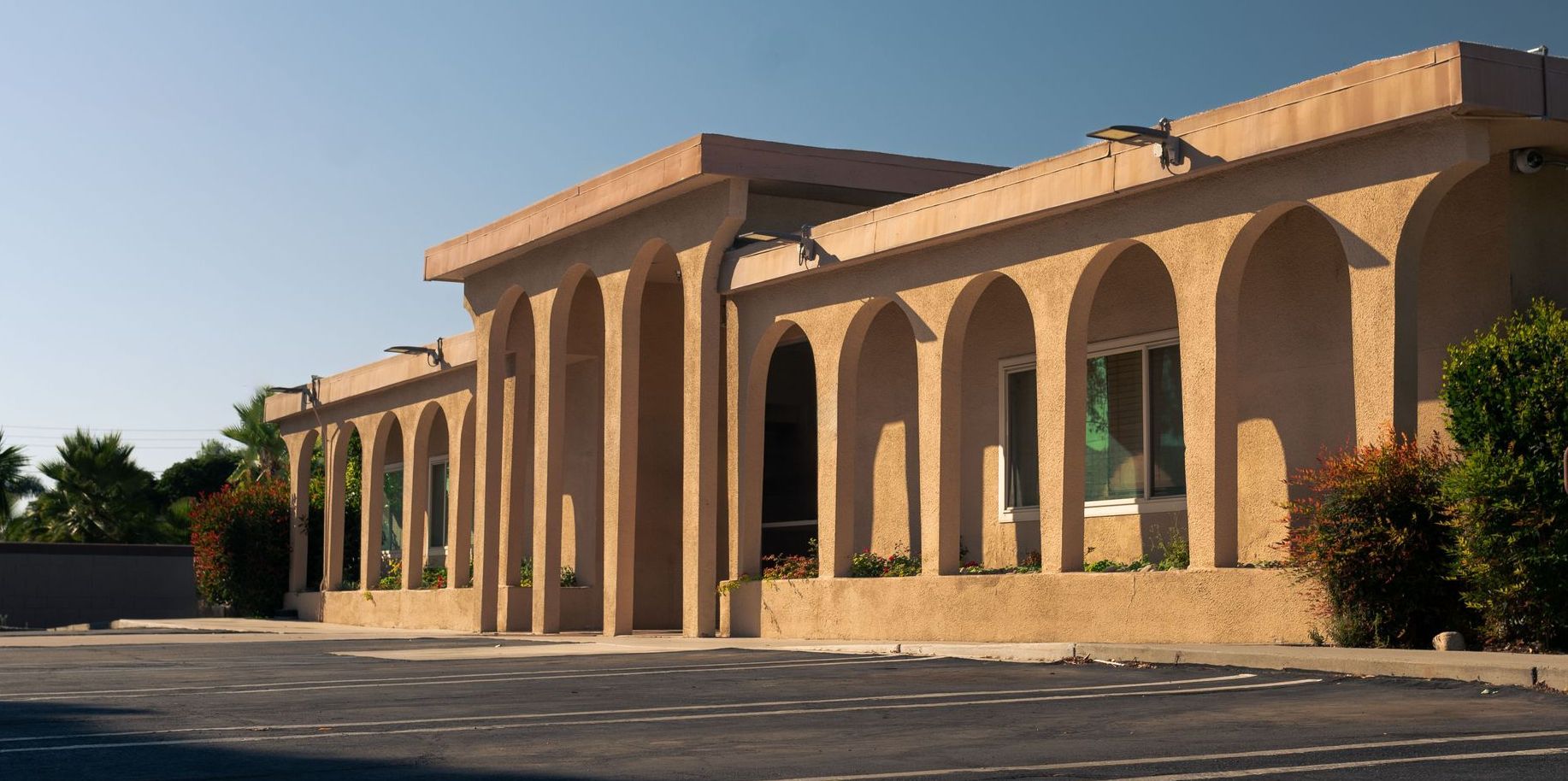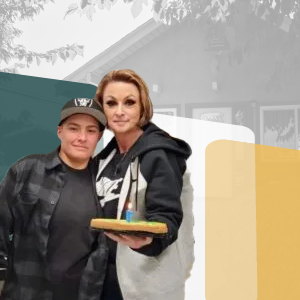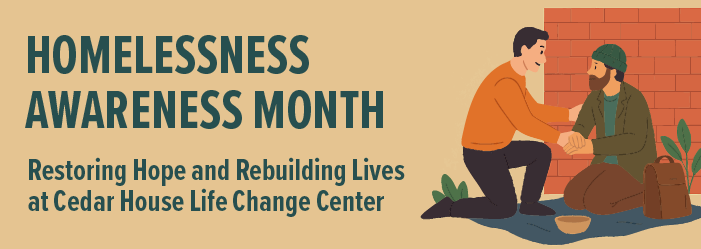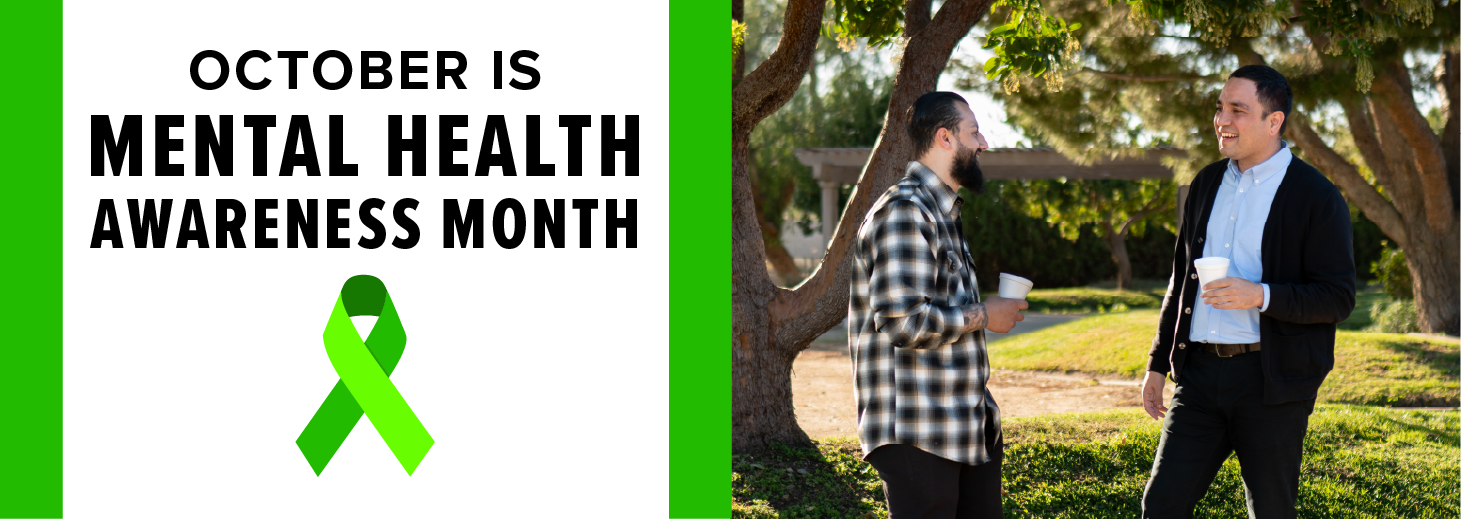The Company She Kept

As a teenager, Sabrina overcame the challenges of bouncing around numerous foster and group homes, frequently being rejected for her sexuality. She emancipated from the system and prepared herself to start school. The company she kept, unfortunately, led her down a dark path instead.
The young woman with whom Sabrina had a relationship since the age of 15 was a drug addict. She used meth on a regular basis and tried to convince Sabrina to join her. Sabrina wasn’t interested. As a matter of fact, she argued with her girlfriend time and again begging her not to use. But ultimately, there came a time when Sabrina lost that argument and was persuaded to try using meth herself.
She was living in a group home in Pasadena when it happened. Sabrina said, “I can’t count how many group homes and foster homes I had lived in.” Her girlfriend and roommate surprised her by using meth in her room while she was in the shower. She said, “I was scared of meth. I wouldn’t touch it.” When she entered the room and saw that they were using, they fought for a long time before her girlfriend finally said, “If you love me, you’ll try it.” And that was the final straw.
Shortly after that first experience with meth, Sabrina and her girlfriend, both addicted, were kicked out of the group home. She was homeless, hadn’t started school and was barely getting by with cash aid and food stamps. Even at times when Sabrina wasn’t interested in getting high, her girlfriend would manipulate her into using.
Sabrina lived under a bridge on a binge in Pomona for three years. During that time, she met up with an old boyfriend which led to an unexpected pregnancy. She said, “I didn’t even know I was pregnant until I went into labor. I was so high and so skinny.”
The paramedics immediately took the baby girl away, but that was a turning point for Sabrina. She said, “I fought tooth and nail to get her back.”
Her social worker asked if she would be willing to go to rehab in order to gain custody of the baby, and Sabrina wholeheartedly agreed. She called every day to inquire about getting into a residential program. In March 2018, she was admitted to the Maple House program. She simply wasn’t ready. During her stay at Maple House, she was rude, disobedient and angry. By May she had made very little progress, and her behavior led to her dismissal from the program.
A few months later, she entered another rehab program where she served as kitchen coordinator and began to make some progress toward sobriety. She got in trouble there for breaking rules and was dismissed from that program as well. Next, she tried an outpatient program and continued staying clean and sober. She moved into a sober living facility. When one of her drug tests came out questionable, she had to leave that home, too. She said, “I ended up losing my home and losing faith again. I went back to the streets in Pomona.”
On February 21, 2019, her social worker managed to get her back into the treatment program at Maple House. This time she was ready. She loved her counselors and learned so much from them.
Sabrina said, “They really helped me through it. Rosanna opened my mind. Rita taught me to cook and gave great advice. They were always there to listen, and they motivated me to do good. I could talk to them instead of getting angry.”
At Maple House, Sabrina learned the importance of surrounding herself with kind-hearted people who not only care about her, but also continuously build her up to be the woman she was born to be. She has been sober for nearly two years and is the proud mother of two young girls.


The holiday season can be joyful but also challenging. For many people, the holidays are a time of togetherness and celebration. But for those in recovery from substance use, this season can bring a mix of emotions -- joy and gratitude, but also stress, temptation, and pressure. Family gatherings, social events, and memories of past holidays can test even the strongest commitment to sobriety. At Cedar House Life Change Center, we understand these challenges. Our mission is to help individuals and families build lasting recovery through treatment, education, and ongoing support. Here are a few practical ways to protect your sobriety and stay connected to hope this holiday season. 1. Plan Ahead for Triggers Before attending a party or event, think about what might challenge your recovery. Bring your own non-alcoholic drink, drive yourself so you can leave early if needed, and connect with your sponsor or peer network before you go. Preparation gives you confidence and control. 2. Stay Connected to Your Support System The holidays can feel isolating, especially if you’re making lifestyle changes. Reach out to supportive friends, family members, or recovery peers who understand your journey. Schedule a check-in or attend a support group before and after big events. Staying connected helps you stay grounded. 3. Prioritize Self-Care Take care of yourself, physically, emotionally, and spiritually. Maintain regular sleep, eat balanced meals, get outside, and make time for reflection or prayer. A calm and nourished mind is your strongest ally in maintaining sobriety. 4. Set Boundaries and Say “No” Without Guilt You don’t have to attend every event or explain your choices. Declining an invitation or leaving early doesn’t make you antisocial. It makes you strong. Your recovery is your priority, and real friends and loved ones will respect that. 5. Keep Recovery at the Center of the Season Stay consistent with meetings, counseling, or alumni groups. Cedar House offers aftercare support, relapse prevention programs, and peer connections that help clients stay engaged long after treatment. Recovery doesn’t stop after discharge. It’s a lifelong process of growth and renewal. You Don’t Have to Do This Alone If you or someone you love is struggling this holiday season, Cedar House Life Change Center is here to help. Our compassionate team provides evidence-based treatment, medical support, and recovery programs designed to meet each person’s unique needs. Reach out today to learn how we can help you or your loved one find peace, purpose, and sobriety this holiday season and beyond.

November is Homelessness Awareness Month, a time to shed light on one of the most urgent issues facing our communities. Every day, thousands of individuals and families across San Bernardino County struggle with the devastating cycle of homelessness, often intertwined with substance use and mental health challenges. At Cedar House Life Change Center, we believe that recovery and stability begin with compassion, connection, and comprehensive care. For more than five decades, Cedar House has provided a safe haven for those seeking to overcome addiction and rebuild their lives. Many of the people we serve come to us after experiencing homelessness or unstable housing—circumstances that make recovery even more challenging. Through our evidence-based treatment programs, sober housing resources, and continuum of care, we help individuals find the structure, support, and self-worth needed to thrive. Our services address more than substance use. We provide mental health counseling, case management, and referrals to permanent housing, recognizing that recovery is not complete until every person has a safe place to call home. For many, Cedar House becomes the bridge from crisis to stability—where individuals rediscover hope, rebuild family connections, and prepare for lasting independence. This month, we invite our community to join us in raising awareness, reducing stigma, and supporting efforts to end homelessness. Whether through donations, volunteering, or spreading the word, every act of compassion brings us closer to a future where recovery and housing are accessible to all. At Cedar House, we know that healing happens one person—and one home—at a time.

Each October, Mental Health Awareness Month reminds us that recovery and healing are possible for everyone. At Cedar House Life Change Center, we understand that mental health and substance use are deeply connected. Many people who struggle with addiction are also coping with conditions such as anxiety, depression, or trauma—and each affects the other. Treating both together is essential to lasting recovery. For more than 52 years, Cedar House has been helping individuals and families throughout the Inland Empire rebuild their lives through compassionate, evidence-based treatment. Our staff empowers people to overcome addiction and mental health challenges with respect, dignity, and hope. Tips for People Seeking Support If you or someone you love is struggling, here are a few ways to start your journey toward recovery: 1. Reach out for help early. You don’t need to wait for a crisis to ask for help. Early intervention can prevent harm and improve long-term success. 2. Get a professional assessment. At Cedar House, licensed clinicians assess each individual’s physical, mental, and emotional health to create a personalized plan. 3. Find community support. Recovery grows in connection. Peer support, counseling, and family engagement help build resilience and accountability. 4. Create stability. Safe housing, structured routines, and supportive care environments help lay the foundation for recovery. 5. Commit to ongoing care. Recovery doesn’t end after treatment—it continues through outpatient services, counseling, and ongoing connection to support systems. How Cedar House Life Change Center Can Help Cedar House offers a continuum of care designed to meet people wherever they are in their recovery journey: Withdrawal Management and Residential Treatment — Structured programs for men and women addressing both substance use and co-occurring mental health disorders. Maple House Perinatal Program — Family-centered services for mothers and children to recover and thrive together. Outpatient and Aftercare Programs — Continuing care, therapy, and relapse-prevention strategies for lasting stability. Family Support — Counseling and education to strengthen families and rebuild relationships. Our integrated treatment model ensures that every client receives comprehensive, coordinated care. You Are Not Alone This Mental Health Awareness Month, Cedar House encourages everyone to talk openly about mental health and seek support when needed. Recovery is not a solitary journey—it’s a shared path toward healing, strength, and renewal. If you or someone you love is struggling with substance use or co-occurring mental health issues, contact Cedar House Life Change Center today. Together, we can help you find hope, healing, and a fresh start.

Share On: